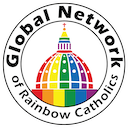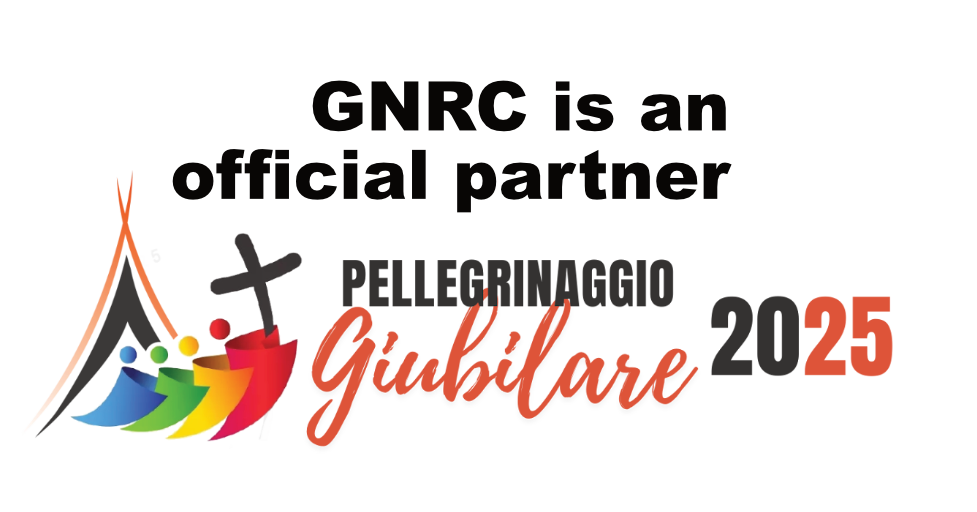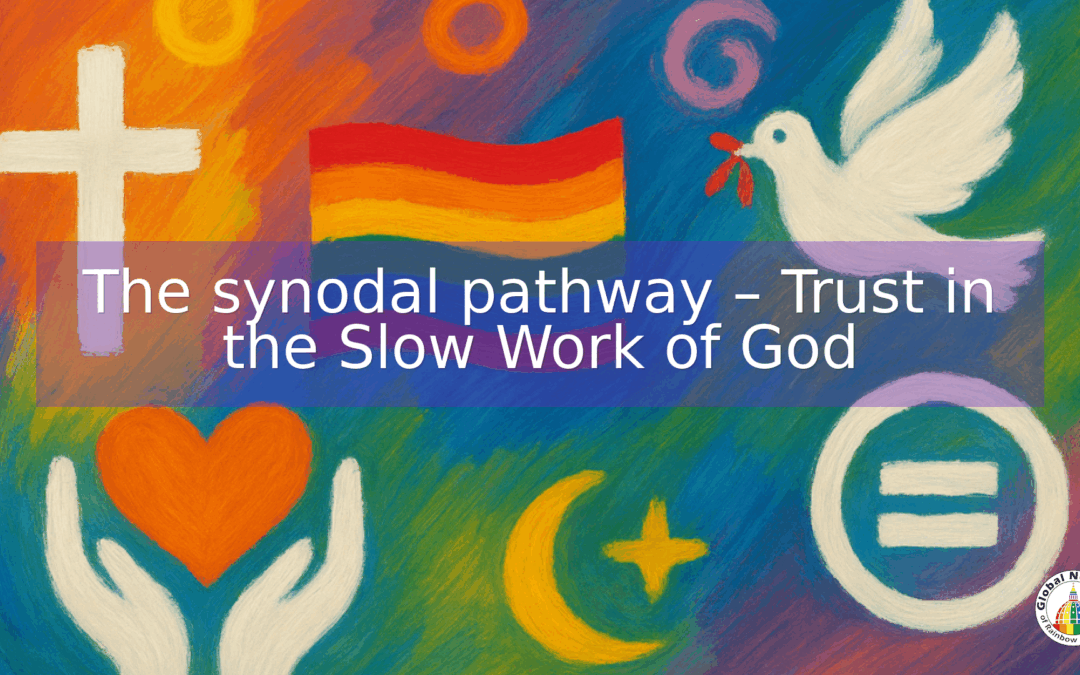“Above all, trust in the slow work of God…that ideas mature gradually — let them grow.
Pierre Teilhard de Chardin, Jesuit, theologian, French palaeontologist (1881–1955)
I want to share some good news with you:
the Synodal Pathway of the Italian Church is entering a new phase.
Four years of listening and dialogue — more than half a million people across Italy’s 226 dioceses: fifty thousand synodal groups, hundreds of dialogue workshops, four hundred diocesan delegates, a thousand national delegates, and all the Italian bishops.
In October the Synthesis Document of the Italian Synodal Pathway was approved — with ninety-five percent of the votes. I want to underline that number: 95%.
It has been a time when the Church in Italy chose to listen to itself — starting from the lived experience and words of its people at all levels.
The final document gathers seventy-five points and more than a hundred proposals.
Five of these concern the pastoral care of LGBT persons — and every one of them was confirmed:
- That local Churches and Regional Episcopal Conferences promote paths of accompaniment, discernment, and integration within ordinary pastoral life for those who seek greater participation in the Church but remain at its margins because of stable affective or family situations different from sacramental marriage (divorced and remarried couples, heterosexual cohabitations, and same-sex unions, etc.) — 95% approval.
- That local Churches, overcoming discriminatory attitudes sometimes present in ecclesial and social contexts, commit themselves to promoting the recognition and pastoral accompaniment of homosexual and transgender persons, as well as their parents, who already belong to the Christian community — 81%.
- That the Italian Bishops’ Conference support, through prayer and reflection, the “days” promoted by civil society to combat all forms of violence and to express closeness to those who are wounded or discriminated against (days against gender-based violence and discrimination, pedophilia, bullying, femicide, homophobia, transphobia, etc.) — 77%.
- That local Churches ensure and work so that, in all formative contexts (groups, associations, movements, new communities, seminaries, and religious formation programs), there be no forms of psychological, spiritual, or conscience abuse, including in matters of sexual orientation — 94%.
- That local Churches, supported by national guidance and with the contribution of youth and family ministries, movements, associations, groups, and civic entities, establish — at least at inter-diocesan or regional level — teams that value existing good pastoral practices and coordinate new pathways of education on relationships, embodiment, affectivity, and sexuality, taking into account sexual orientation and gender identity, especially for adolescents, young people, and their educators — 85%.
⸻
Commenting on these results, Archbishop Erio Castellucci explained that the CEI was not referring to Pride events but to initiatives of prayer and awareness. He specifically mentioned the Prayer Vigils against Homotransphobia — events of faith and dignity.
As Marianne Duddy Burke (GNRC Co-Chair and Dir. Exec. of Dignity USA), participant in the Vatican Jubilee recently said,
“Our presence in this gathering meant that LGBTQ+ Catholics truly have a place at the table. It opens the possibility that more places will be available for members of our community at future Synod and church events.”
That sentence captures the sense of hope many of us share: not the ownership of a process, but its shared fruit.
The document now goes to the Presidency of the CEI, which will appoint a group of bishops tasked with defining pastoral priorities and the order of implementation of the proposals. It’s not about reopening the debate, but about deciding how and when.
It is a reason for joy: for the first time, the pastoral care of LGBT+ persons becomes part of the ordinary journey of the Italian Church, not as a separate topic, but as part of the common life of faith.
⸻
Yes, it truly is good news, and not only for Italy.
It matters that it began here.
The Italian Church walks in direct dialogue with the Vatican, and its pastoral steps often become a laboratory for the universal Church.
Globally this process will unfold at different rhythms, and this is where we have a part to play.
It is time to walk peacefully in faith:
ring the bell, knock on the door of your local parish, send a letter to your bishops, with love.
If one turns away, answer with love and try the next one.
The more this path is lived and shared, the more it will continue to open.
Alessandro Ludovico Previti


